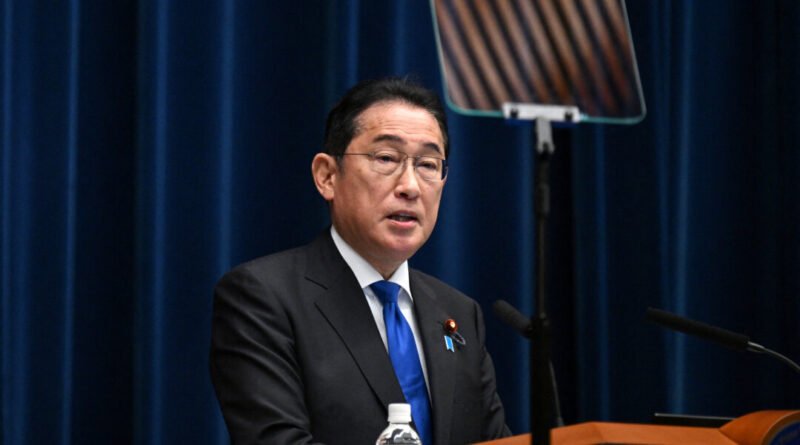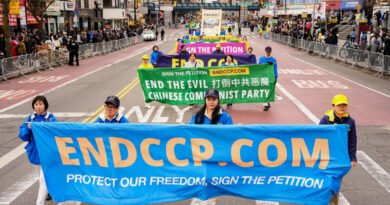New Prime Minister to be Elected in Japan amidst Rising Tensions with China
As Japan amps up its regional leadership in addressing geopolitical tensions with China, the upcoming Japanese prime minister will play a crucial role in determining the country’s future direction, especially in terms of its China policy.
Leading candidates currently include 43-year-old Shinjiro Koizumi, a former Minister of Environment and the son of the popular former Prime Minister Junichiro Koizumi, and 67-year-old former Minister of Defence Shigeru Ishiba. The election on September 27 will decide the leader of the ruling Liberal Democratic Party (LDP) and the next prime minister of Japan.
Kishida took office as prime minister in October 2021, and although he is seen as following in the footsteps of the late Prime Minister Shinzo Abe’s policies, the next leader has the opportunity to define their own path.
Kishida Administration’s Policy on China
Akio Yaita, director of the Taipei branch of the Japanese newspaper Sankei Shimbun, noted that Kishida largely continued Abe’s legacy, advocating for a more active defense and assertive foreign policy against China’s expanding geopolitical influence.
“Whether Abe’s approach will persist is now a focal point in the upcoming leadership election,” Yaita explained to The Epoch Times.
Tsukasa Shibuya, a researcher at the Institute of World Studies at Takushoku University in Japan, mentioned that while Kishida took a strong stance against the Chinese regime, aligned with G7 countries’ positions, it remains uncertain if the next leader will continue such policies.
“It’s a part of the island chain that we militarily kept referencing,” Simon O’Connor, a former chair of the Parliamentary Select Committee on Foreign Affairs, Defense and Trade in New Zealand, told The Epoch Times, referring to Japan. “It is a key area for American military operations as well.”
LDP Candidates’ Stance on China
Sankei Shimbun’s survey among LDP members on August 24–25 revealed that Koizumi currently leads the poll at 29.4 percent, with Ishiba closely behind at 23 percent.

Shibuya noted that the exact position of the 43-year-old Koizumi on China-related issues remains uncertain. However, Yaita believes that Japan’s overall trend of confronting the CCP will persist regardless of the victor in the leadership election, though the strength of Japan’s position may vary among the candidates.
Since World War II, Japanese politics have been predominantly governed by the conservative LDP, with few shifts in power to other parties. The LDP currently aims to boost government approval ratings through leadership changes, a strategy it has employed multiple times.
Strategic Ambiguity in Protecting Taiwan
Amidst threats from the CCP to invade Taiwan, the question of whether Japan would intervene in a potential conflict in the Taiwan Strait has been a focal point in examining Japan’s evolving defense policy in recent years.
The LDP has generally supported amending Article 9 of Japan’s postwar constitution, which includes a no-war clause renouncing the use of military force to resolve international disputes. Consequently, Japan’s military can only engage in self-defense when under attack and is constitutionally prohibited from initiating military actions.
Abe and his successors have long advocated for revising the clause to allow Japan a more active role in defense and regional security in response to threats from China and North Korea. However, revising the clause necessitates a parliamentary supermajority and a referendum in Japan.
Nevertheless, the Abe administration reinterpreted the constitution to incorporate “collective self-defense,” enabling Japan to take military action when an ally is under attack. Japan has not defined which country besides the United States qualifies as an “ally.”
“I believe that Japan’s strategic ambiguity has shifted,” O’Connor remarked, “The Constitution used to be very clear, with a strictly defensive stance, but now there’s a change. They clearly perceive real threats that they need to be prepared to counteract.”





